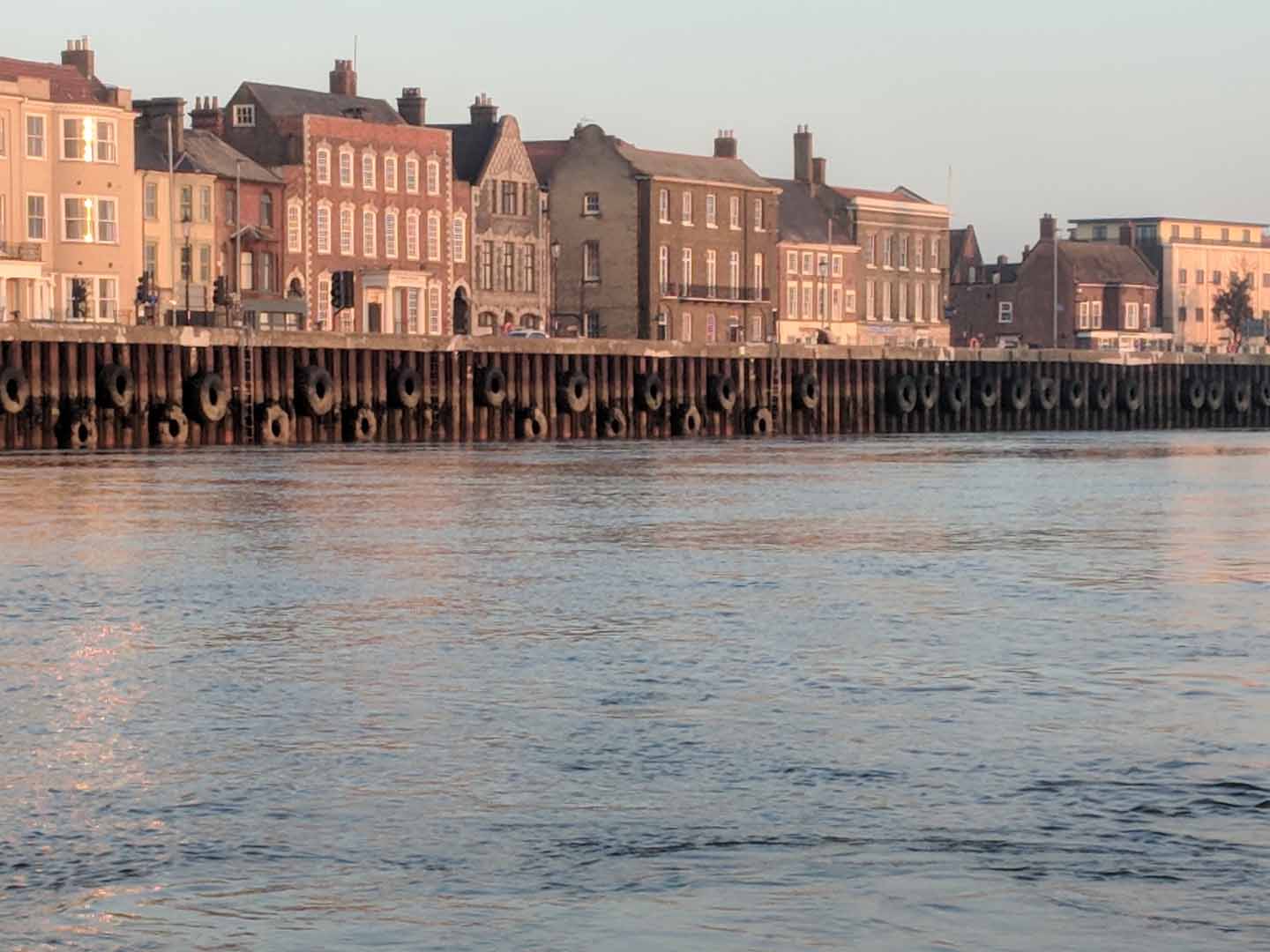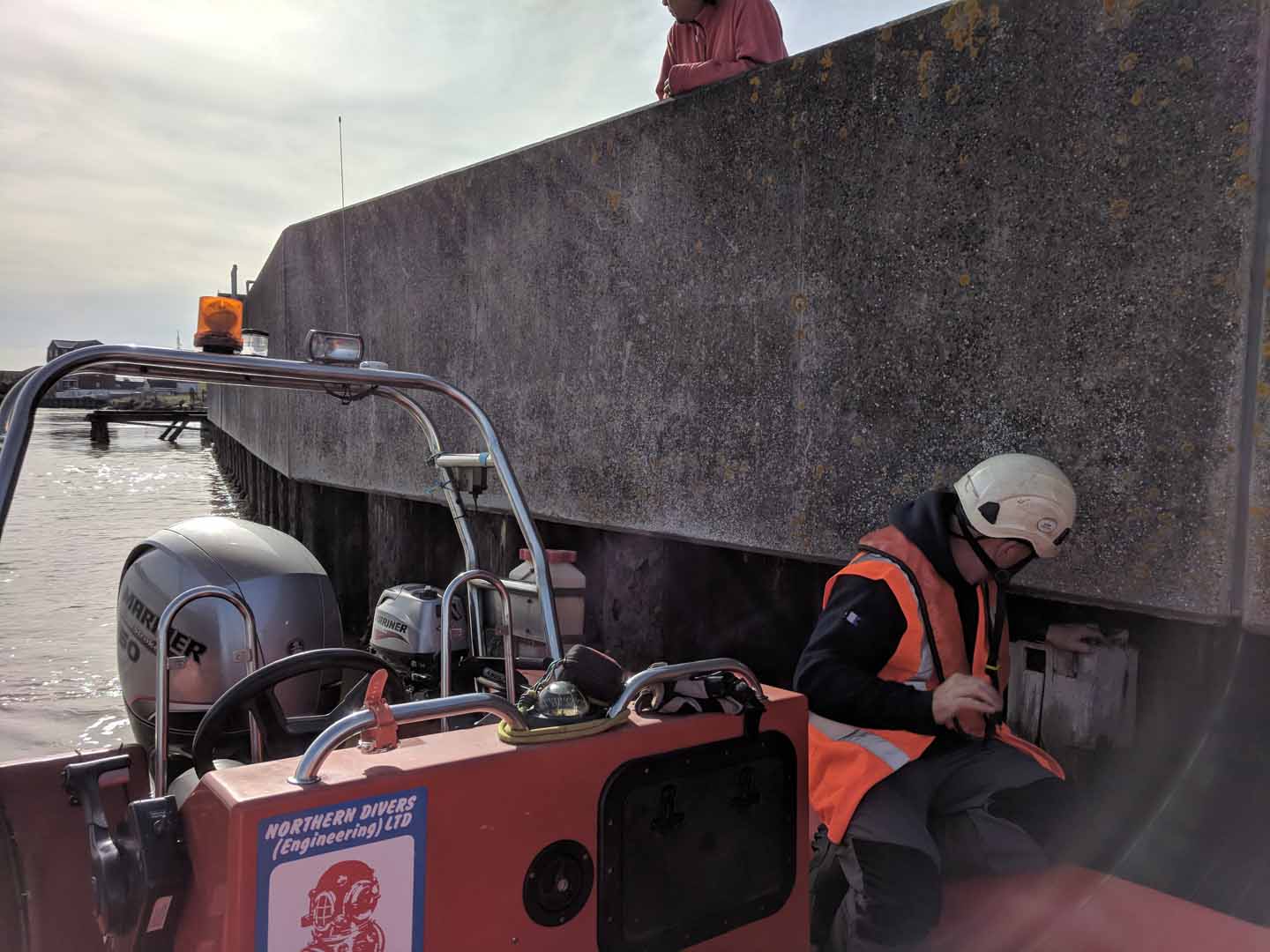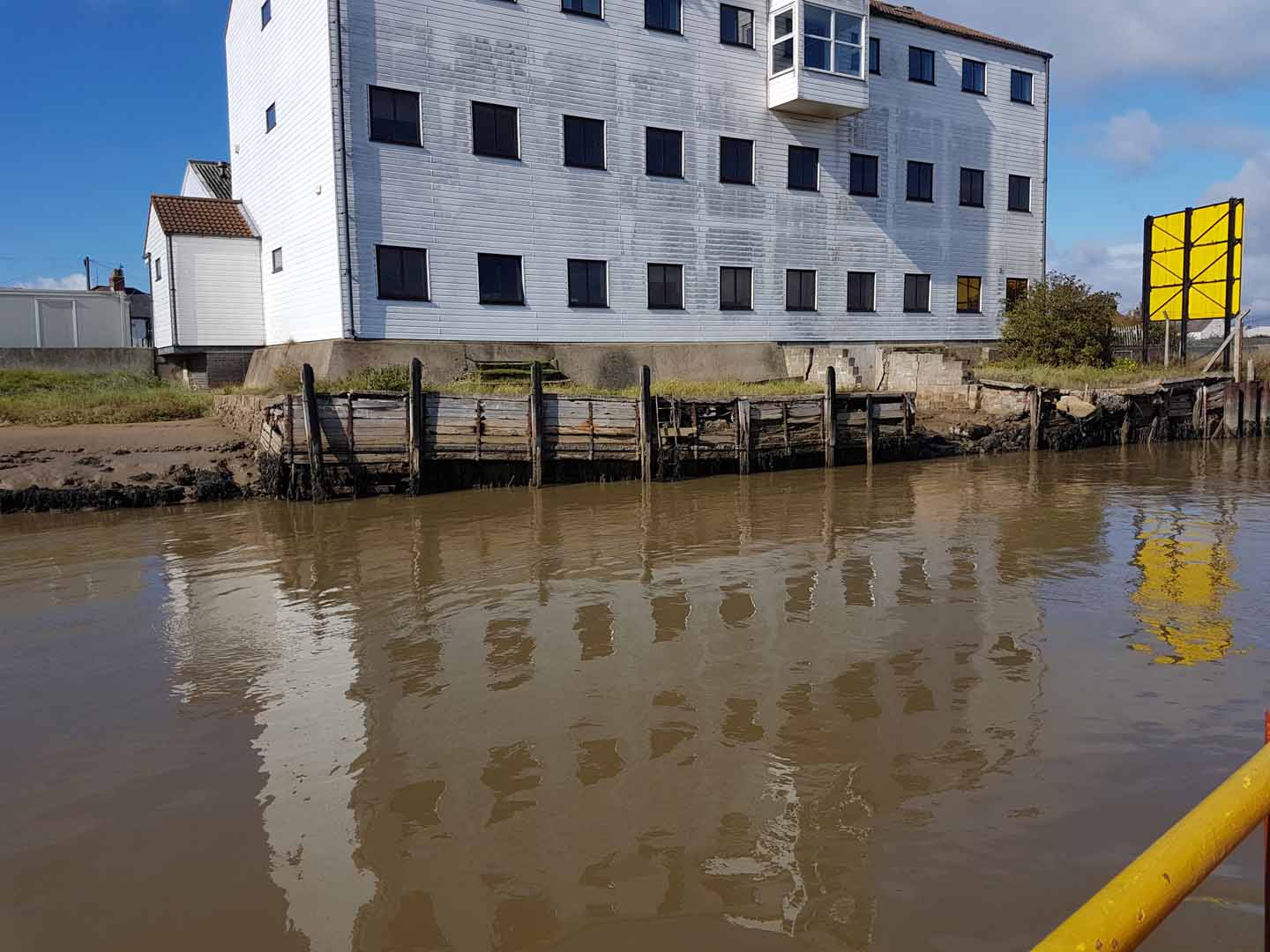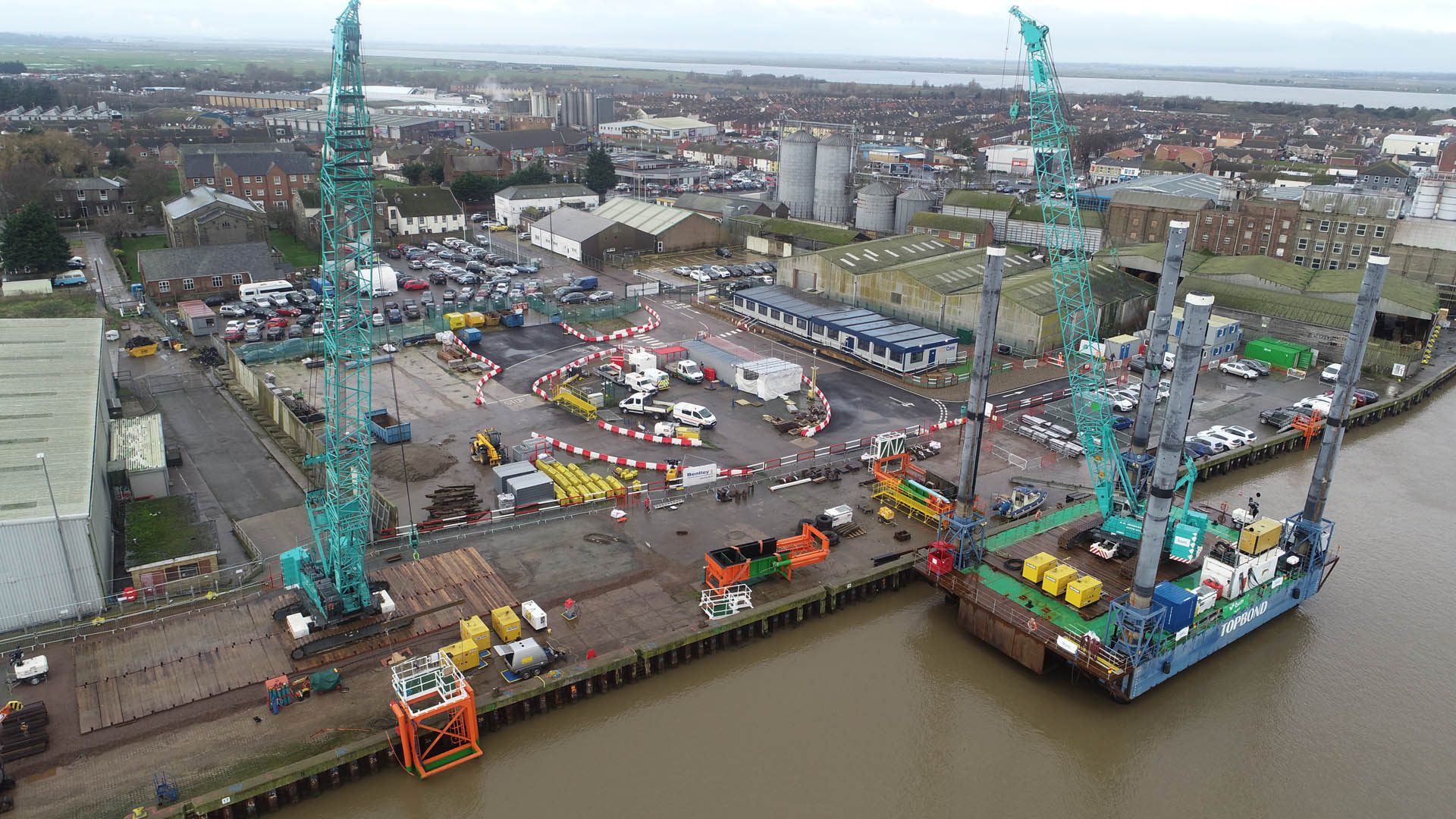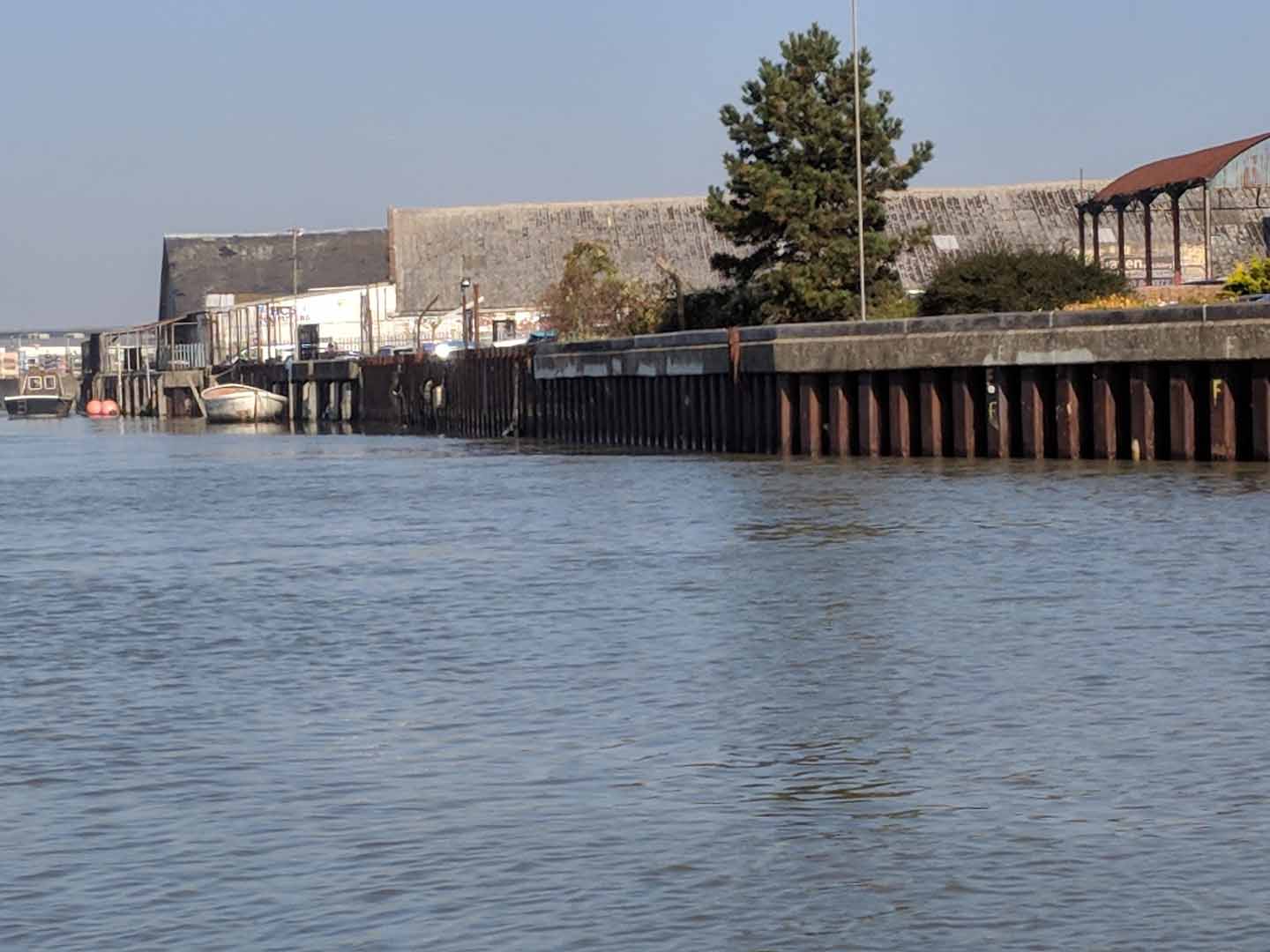The Great Yarmouth Tidal Defence project has seen our teams supporting colleagues from JBA Bentley in delivering this multi-partner project since 2019. As part of the project we have repaired and replaced 4.5km of existing tidal defences, with close consideration for the long-term environmental impact of the defences.
- Client Environment Agency
- Location Great Yarmouth, Norfolk
- Services
Protecting homes and businesses through strategic repairs and replacements of existing defences
Essential improvements were required to extend the asset life of flood defences along the River Bure and River Yare, taking into consideration any environmental constraints.
Due to the different construction times of existing defences which resulted in the variation of corrosion levels, the conventional approach of replacing piled walls along the 4.5km stretch was not viable.
Rather than simply replacing existing defences, we identified areas for refurbishments and conducted extensive testing to implement an innovative solution tailored to each section.
The 'one-size-doesn't-fit-all' strategy targeted the type of repair or replacement for existing defences. Through innovative design and planning, the duration of works and material quantity saved over 5,500 CO2e - a 65% reduction compared against the baseline.
Innovative solutions supported by environmental expertise
The innovative engineering solutions delivered as part of the Great Yarmouth Tidal Defence project were underpinned by the support of our Environment and Sustainability team. Environmental and ecological assessments were conducted for each package of works, including Environmental Risk Assessments, Water Framework Directive Scoping Assessments and bat surveys. By working with a specialist marine sub-consultant we were also able to offer supporting evidence that the proposed piling method (and the programme) would not be detrimental to migratory fish.
Award-winning environmental enhancements
Alongside supporting the improvement to existing defences, our Environment and Sustainability team also undertook optioneering to determine how the neglected riverbank could be enhanced. The approved solution was to reprofile the riverbank and install brushwood fascines, rock rolls and reclaimed timber fenders from the quay walls to create an intertidal terrace, encouraging suspended sediment from the tidal river to accumulate and form mudflat. This work contributed to the Great Yarmouth scheme winning Environment and Sustainability Initiative of the Year at the British Construction Industry Awards. The scheme was also a finalist at the British Construction Industry Awards, in the 'Temporary Works Initiative of the Year' category and was named as runner up in the NEC Martin Barnes Awards 2022.
